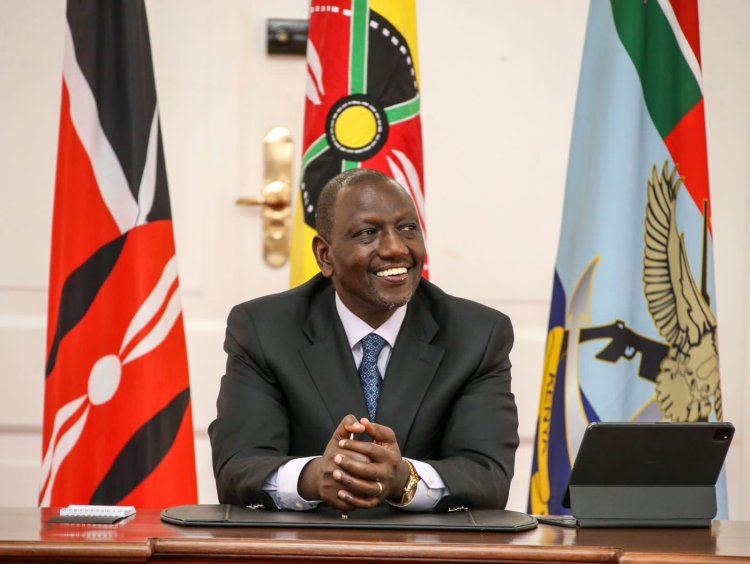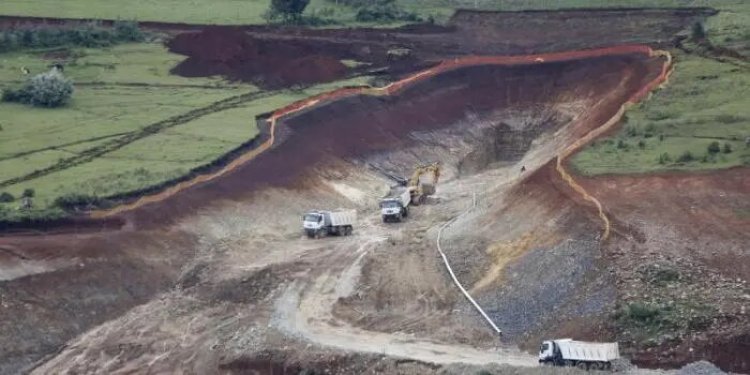Ruto's Cabinet Allows Sale Of These Public Businesses
The Cabinet explained the benefits of the new bill that will repeal the Privatisation Act of 2005.

President William Ruto's Cabinet on Tuesday, March 21 approved the Privatisation Bill that effectively strips Members of Parliament (MPs) of oversight role in the sale of non-performing parastatals.
According to a despatch from State House, the Cabinet explained the benefits of the new bill that will repeal the Privatisation Act of 2005.
"To support the State’s divestiture from non-strategic sectors of our national life, Cabinet approved the Privatization Bill. The revised policy shift seeks to revitalize Kenya’s Capital Markets through the review of the framework for State divesture as part of a wider reform process targeting Public Enterprises," read the dispatch in part.
The Privatization Bill of 2023 will usher in a more facilitative and non-inhibiting legal and policy framework that will oversee privatisation in the country.

President Ruto chairing a Cabinet meeting on March 21, 2023. /STATE HOUSE KENYA
The proposed Bill gives power to the Treasury to privatise public-owned enterprises without the bureaucratic approvals of Parliament, thus making it easier for the government to sell public companies to private investors.
The government aims to make billions of shillings in revenue from selling public entities that are currently making losses. President William Ruto's administration seeks to use proceeds from the sale to ease the pressure to borrow in order to finance capital-intensive infrastructure projects.
Notably, no State-owned company was sold at the NSE during the reign of former President Uhuru Kenyatta between 2013 and 2022. Six firms were however privatised during President Mwai Kibaki's term and they included KenGen, Kenya Reinsurance, Safaricom, Mumias Sugar, Telkom Kenya and Kenya Railways Corporation.
The same despatch saw the Cabinet sign a deal between Kenya, China and Italy, that will allow the extradition of lawbreakers through the Extradition Treaties between Kenya and the two countries in a bid to promote judicial cooperation, adding to the many deals Kenya has struck with foreign enforcement agencies to extradite criminals to face the law for crimes they committed.
"Kenyans who run afoul of the law in the two nations can be extradited for purpose of carrying out criminal proceedings or executing final custodial sentence in Kenya," read the despatch.
Kenyans who commit crimes in Italy and seek asylum in Italy or China and travel back to the country will also be extradited to face the law in the respective country. However, the government can also call for the Chinese and Italian governments to surrender citizens of their countries who commit offences and are charged in a court of law.
"A requisition for the surrender of a fugitive criminal of any country who is in or suspected of being in Kenya shall be made to the Cabinet Secretary (CS) by a diplomatic representative or consular officer of that country," Part V of the Extradition (Contiguous and Foreign Countries) Act reads in part.
Upon receiving a request, a CS may, by order under his hand, signify to a magistrate that a requisition has been made and require the magistrate to issue his warrant for the arrest and detention of the fugitive criminal. A magistrate will then consider the request and upon review of the evidence tabled before him, decide whether or not to issue a warrant of arrest.
A magistrate who has jurisdiction can also approve a warrant issued in a foreign country if the accused committed an offence punishable by law and is suspected to be in Kenya.
"An endorsement of a warrant shall be signed by the magistrate and shall authorize all or any of the persons named in the endorsement and every police officer to execute the warrant by arresting the person named in it and bringing him before a magistrate," Part 12 of the Act reads.
At the same time, the Cabinet moved to cement the place of Nairobi as the premier centre for International Arbitration on the continent by considering and approving the policy on Alternative Dispute Resolution (ADR). The State intervention also seeks to decongest the country's Courts and enhance access to justice by providing high-quality, affordable, timely, and effective alternatives to standard judicial processes.
Providing an example of how Alternative Dispute Resolution can be used to unlock complex disputes, the Cabinet considered and approved the resolution of the impasse in the implementation of the Arror, Kimwarer, and Itare Dam Projects through ADR.

Past construction of Arror and Kimwarer dams project. /FILE






